- הרשמה לניוזלטר
- מועדון המשפיעים
- שימושון
- אודות
- תרום לנו
- צור קשר

While IDF soldiers risk their lives in Gaza and on the northern border, a new think-tank funded by the New Israel Fund (NIF) and the Friedrich Foundation in Germany, is working to establish a Palestinian State during the war and shape the thinking of the Israeli Left.
The main strategies involve exerting international pressure on Israel, emphasizing that Netanyahu and "the settlers" supported Hamas, and denying the PA’s involvement with terrorism.
This think tank which has flown under the radar so far is called “Mitvim” and claims that it works to advance the "formation of alternative foreign policy." Aside from being supporting by the NIF and the Friedrich Foundation, it has also partnered with the Berl Katzenelson Foundation.
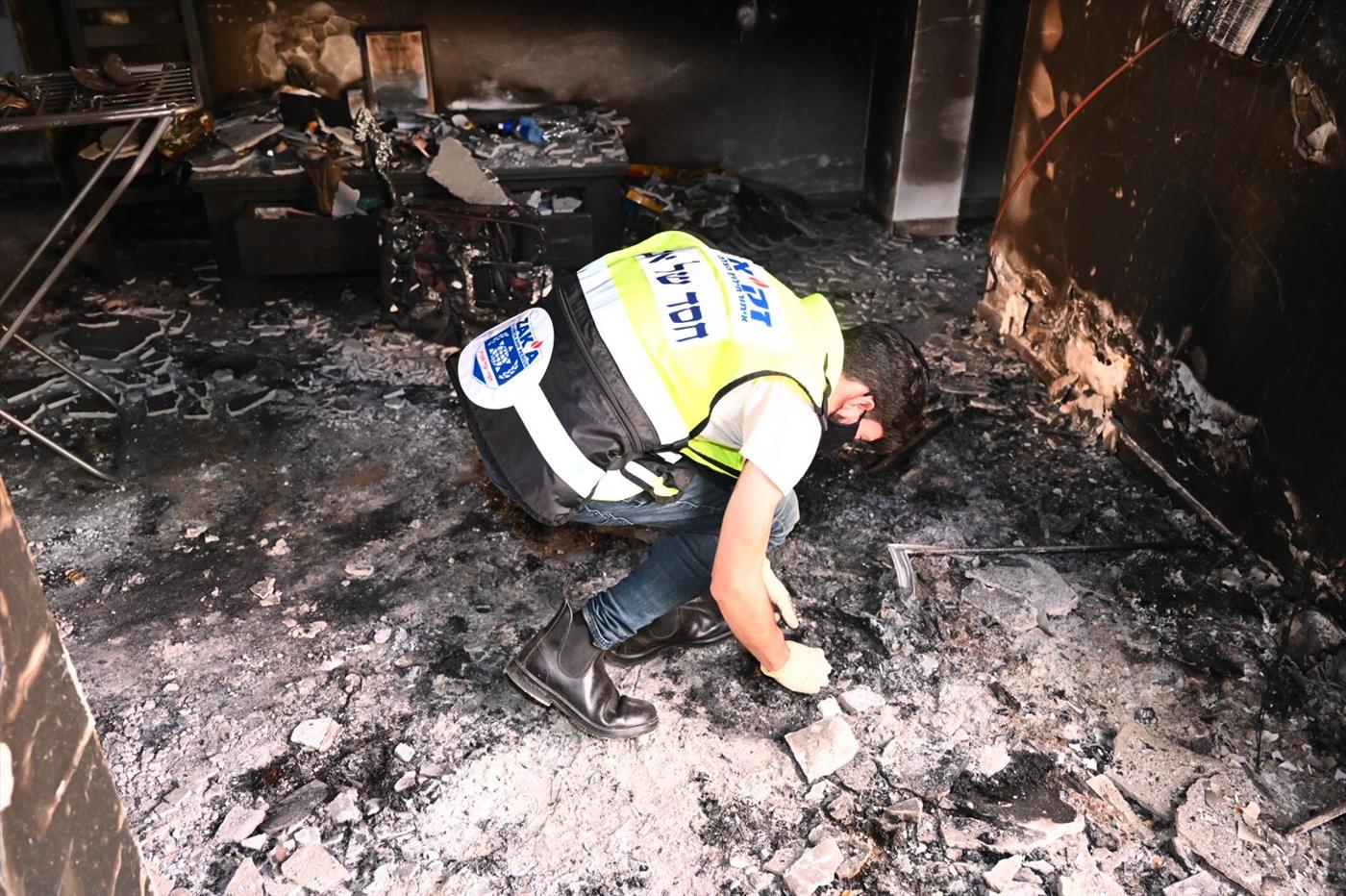
Already at the beginning of the war, when most of the public was still in shock and ZAKA personnel were still gathering the bodies, Mitvim established a task force to formulate strategy, organize talking points, and promote establishing a Palestinian state after the massacre. The team has met every week since the start of the war.
In the list of talking points for "Political and Public Discourse in Israel," the task force emphasize the need to advance the point that no Palestinian or foreign entities will agree to provide any assistance without a commitment to establish a Palestinian state.
The task force outlines a plan in three stages, with the ultimate goal being the establishment of a Palestinian state based on the principles of the "Saudi Initiative" from 2002 (a Palestinian state with its capital in East Jerusalem).
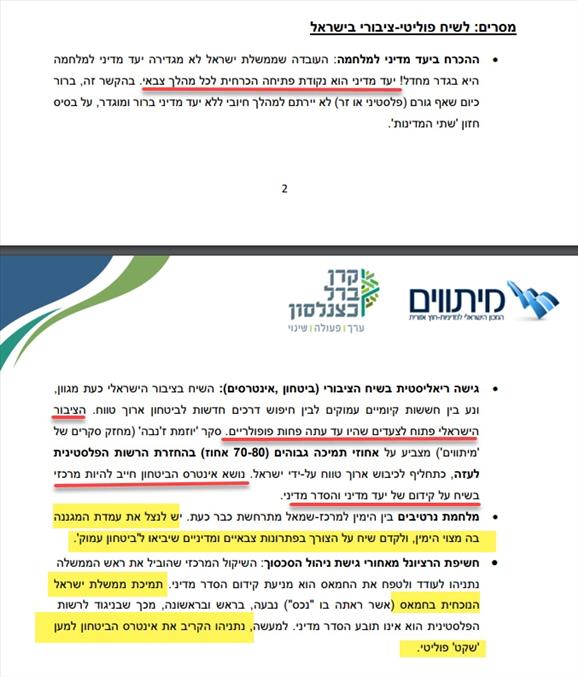
The task force emphasizes that discourse must be centered around the presentation of a “diplomatic solution” and that establishing a Palestinian state is a security necessity since the IDF alone cannot provide security.
The key tool suggested by the task force to achieve its goal is through exerting international pressure against Israel.
The task forces suggests that President Joe Biden can serve as the main "lever" to promote establishing a Palestinian state since the United States has "shaped the confines of the war thus far" and will largely shape the happens the day after. They further note that the United States has opposed re-occupation of Gaza and advanced a diplomatic solution.
The task force suggests using American and international recognition of a Palestinian State in the Judea and Samaria as a way of "establishing facts on the ground."
What the media doesn’t report
Telegram
Whatsap
Likewise, the task force promotes the idea that the Biden Administration should send an envoy to increase pressure for a “diplomatic solution" and assert the American commitment to the "two-state solution."
The task force suggests a second source of pressure that can be applied from within the government and the War Cabinet, specifically Gantz and Eisenkot.
During the fourth week of the war, the task force proposed a new "roadmap" towards establishing a Palestinian state. The first stage– which they suggest will take place during the war– is to force Israel to commit to ending the occupation and establishing a Palestinian state with a bridge between Gaza and Judea and Samaria.
Among the proposals presented by the Mitvim task force are an international summit, a decision by the UN or the UN Security Council, or a speech by President Biden.
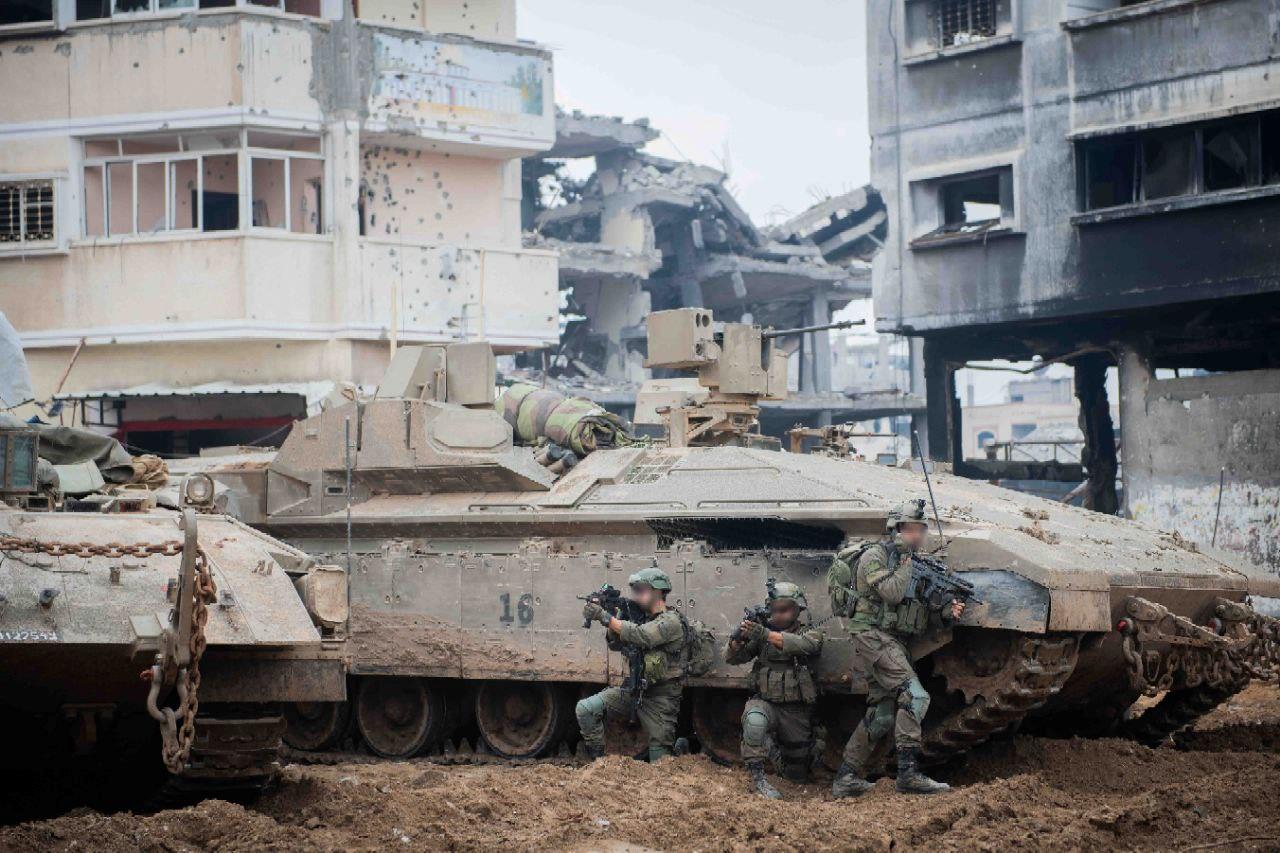
The task force states that "there is zero chance of promoting this plan within the government" and that the Americans will need to "lead, shape, and manage the process." The Americans will also be the ones to decide when to advance from one stage to the next. According to the task force, Israel will not have the right to veto any decisions.
It should be noted that the concept of exerting international pressure against the Israeli government is not new to Mitvim. The institute was also active in the Kaplan protests, which delegitimized the right-wing government worldwide. The institute even received a special grant from the New Israel Fund for its work in advancing the protests.
The roadmap proposed by the team includes three stages:
In the first stage they expect to define the diplomatic goals and obtain an Israeli commitment to ending the "occupation," even as fighting in the war is ongoing.
In the second stage they propose to bring international or Arab forces to control Gaza with a clear and time-limited mandate. These forces will prepare for the gradual transfer of authority to a "reinvigorated Palestinian authority."
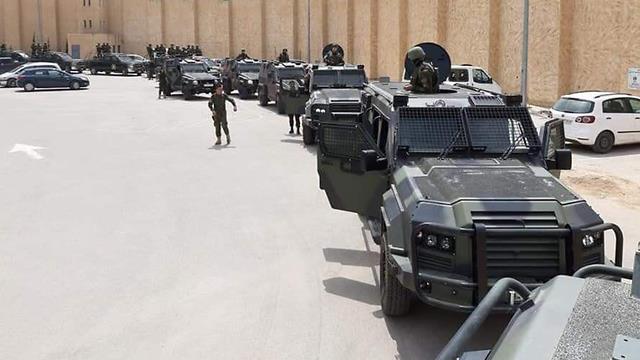
During this interim period, Palestinian Authority elections will be held under American supervision and without Hamas. The US will issue recognition of a Palestinian state and work will be undertaken to reconstruct Gaza with an emphasis on creating the infrastructure that will be needed for a Palestinian state, including a port, railways, and more.
In the third stage there will be negotiations on the establishment of a Palestinian state based on the Arab initiative to be concluded within 5 years.
The task force explains that the current fighting in Gaza will also have to be guided by the suggested political goal.
The primary implication of this is that Gaza's infrastructure, such as Hamas government offices and government ministries, should be left intact as in the near future they will be needed by the new authority that will rule the and ultimately become part of the Palestinian state.
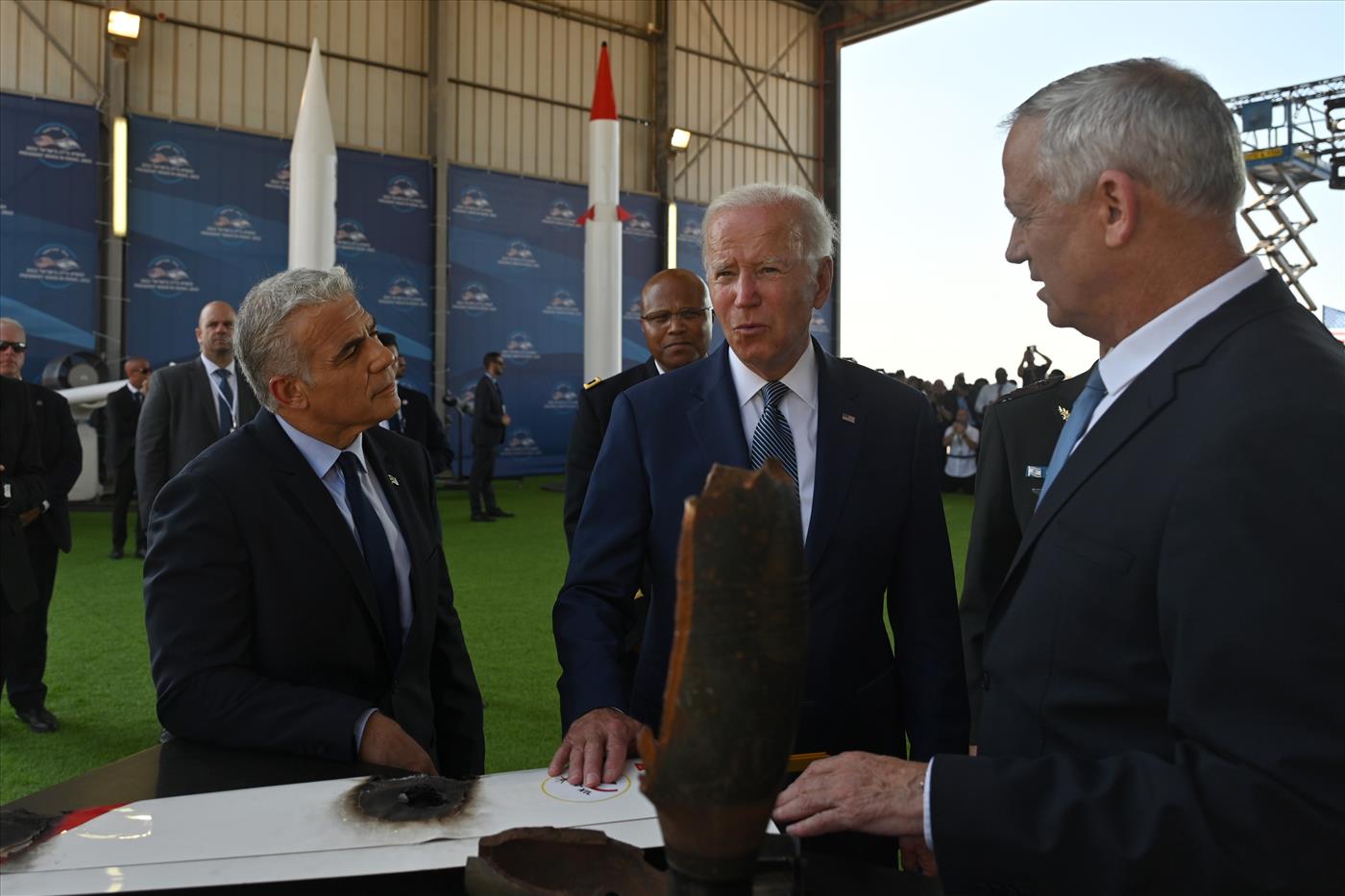
The task force notes the real danger that military operations could serve the "Netanyahu doctrine" which opposes a Palestinian state, especially if the IDF maintains a territorial presence and reduces the borders of Gaza. They especially warn against IDF presence in the Philadelphi Corridor bordering Egypt or a security perimeter on the eastern border.
The most urgent mission, according to the task force, is to combat the narrative that the PA is similar to Hamas.
In a list of talking points entitled "Save the Palestinian Authority" developed during the task force’s sixth meeting, they present 3 points:
The first is that "without the PA, we will be stuck in Gaza," the second is that "Jewish settlers threaten Israel's security," and the third is to highlight the PA’s role in combatting terror and making a "positive contribution to Israel's security in the West Bank."
The task force presents as one of its "actions to advance the goal of a Palestinian State" as "condemning Jewish settler." They propose linking Jewish settlements with the rise of Hamas and Iran. “A narrative connecting the rise of Jewish settlements with the rise of Hamas and Iran must be constructed," writes the Mitvim task force.
In the talking points on the need to "Save the Palestinian Authority," they suggest that "the settlers are dangerous to Israel's security," and "Netanyahu, Smotrich, Ben Gvir, and Hamas are all strive for a common goal."
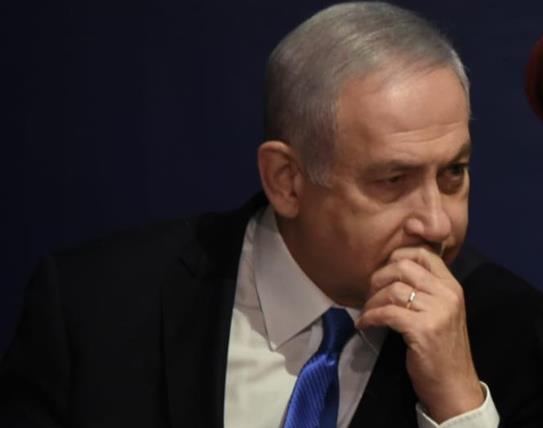
In the talking points on "Political and Public Discourse in Israel,” the task force presents Netanyahu as being responsible for the "approach that suggests managing the conflict" and being the person who supported Hamas’ rise.
The task force states that the narrative should be that the current Israeli government supported Hamas because it does not advance a diplomatic solution and that Netanyahu sacrificed Israeli security for “political quiet.”
The task force describes an ongoing war of narratives already taking place and emphasizes the need to “take advantage of the defensive position the right-wing finds itself in” to promote a conversation on the need for both military and diplomatic solutions to achieve "deep and lasting security."
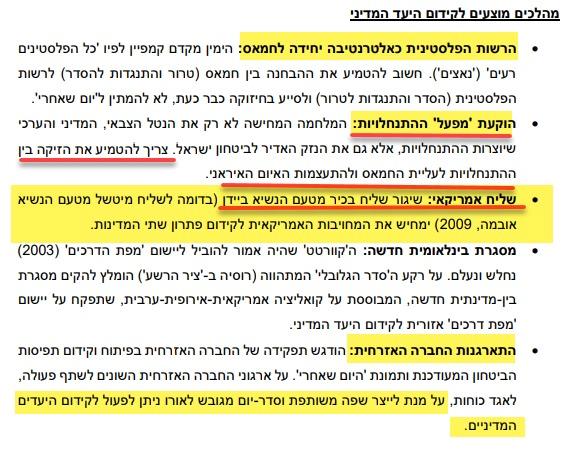
The task force was highly concerned about the decline in public belief in the Two-State Solution and a recent survey indicating that the Arab population in Judea and Samaria supports terrorism.
Mitvim emphasizes the importance distinguishing between the Palestinian Authority and Hamas, and portraying “the PA as the only alternative to Hamas.”
The task force places special emphasis on the importance of terminology and language. Thus for example they seek to emphasize that the conflict is not between Israel and Hamas but one between "extremists" and "moderates." They also highlight it as a regional issue rather than an “Israeli-Palestinian” one.
Thus within Israel they seek to present all of the right wing as the “Radical Right” to be contrasted with the “Zionist Left.” The Right seeks a "messianic victory," while the Left pursues a "diplomatic and security victory."
The task force also notes the importance of collaborating with civil society (left-wing NGOs) to advance the diplomatic goal of a Palestinian State. Part of this work will involve creating a “shared language and agenda” to advance the diplomatic goals.
As part of these efforts, Mitvim held a conference with the participation of opposition leader Yair Lapid, who has already begun advancing the talking points formulated by Mitvim.
In a recent Channel 2 interview on Sunday (Dec. 24th), Lapid stated, “The government has yet to define a strategic goal for this war. Israel cannot enter this type of war without a plan for the day after. In the end, the Palestinian Authority will be part of the civilian governance in Gaza, which will also include the international community and Arab countries such as Saudi Arabia.”